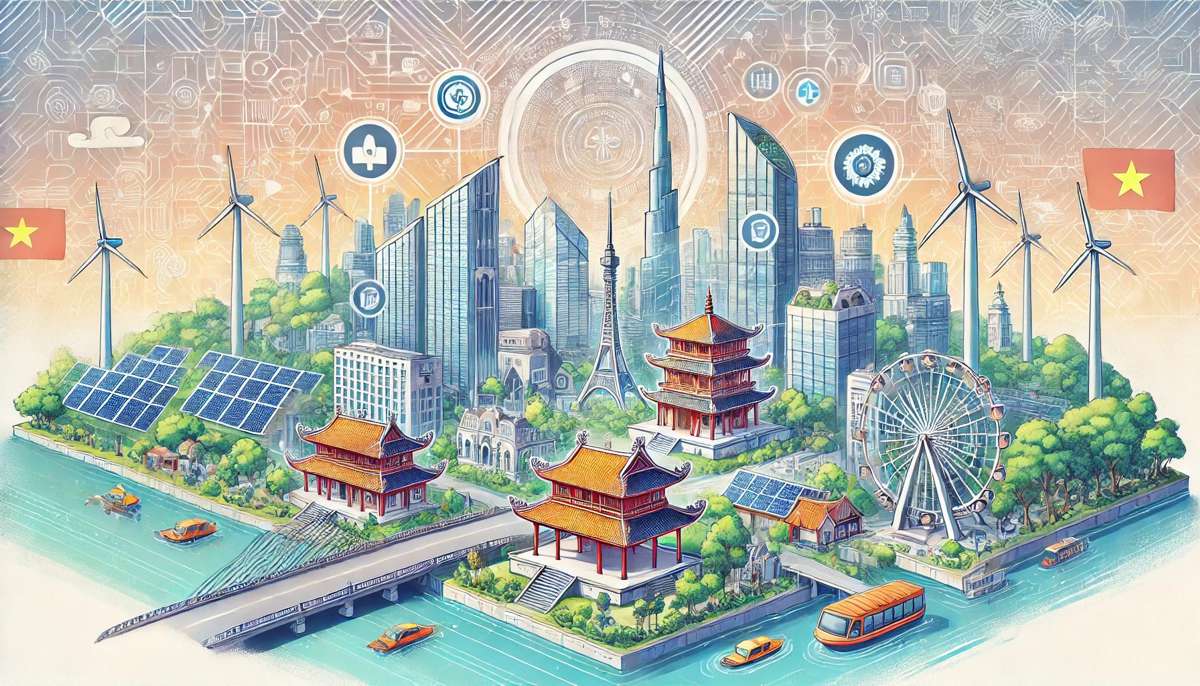Strengthening the Power Sector in Vietnam with Smart Grid Technology
Vietnam’s power sector is on the cusp of a major transformation, driven by technological innovation, international collaboration, and a commitment to enhancing energy security.
At the heart of this transformation is a strategic initiative led by the U.S. Trade and Development Agency (USTDA), which aims to bolster Vietnam’s power sector through the integration of smart grid technology and strengthened cybersecurity measures.
Bridging Technology and Policy
From September 7 to 19, a delegation of 14 senior Vietnamese power sector officials will embark on a reverse trade mission to the United States, visiting Washington, DC, Chicago, and Silicon Valley. This delegation will engage directly with U.S. companies, explore state-of-the-art technologies, and participate in discussions with government counterparts. Their agenda includes meeting with academic institutions to learn about the latest technological advancements that could be pivotal for Vietnam’s energy future.
During the trip, USTDA will host a public business briefing in Washington on September 11, offering U.S. companies an opportunity to present innovative solutions. This briefing is not just a chance for networking; it’s a strategic move to facilitate direct interactions between Vietnamese delegates and U.S. companies specializing in grid cybersecurity, renewable energy integration, and smart grid deployments.
Vietnam’s Ambitious Investment in Energy
Vietnam’s energy landscape is evolving rapidly, with the smart grid market expected to see significant growth over the next six years. The Vietnamese government has outlined plans to invest more than $120 billion into its energy sector by 2030. This ambitious investment aims to enhance the sustainability and reliability of the country’s electricity network, particularly through the integration of advanced cybersecurity measures.
The U.S. private sector, renowned for its leadership in cybersecurity technologies and best practices, is poised to play a crucial role in Vietnam’s energy upgrade. As a leader in the field, the U.S. can offer Vietnam the technological expertise necessary to safeguard its power infrastructure against emerging cyber threats.
Driving Global Infrastructure Initiatives
This reverse trade mission is more than a bilateral effort; it’s a part of a broader strategy underpinned by key U.S. initiatives. Among them is the U.S. government’s Partnership for Global Infrastructure and Investment, which aims to close the infrastructure gap in developing countries by delivering game-changing projects.
Additionally, USTDA’s Global Partnership for Climate-Smart Infrastructure seeks to connect U.S. industry with major clean energy and transportation infrastructure projects in emerging economies, including Vietnam. This mission aligns with the Indo-Pacific Strategy, which focuses on promoting sustainable and inclusive growth across the region.
Cybersecurity
One of the critical areas of focus for Vietnam’s power sector transformation is cybersecurity. As the country’s energy infrastructure becomes increasingly digitized, the risk of cyberattacks escalates. Cybersecurity isn’t just an add-on; it’s the backbone of a reliable and resilient power grid.
U.S. companies specialising in cybersecurity have a golden opportunity to showcase their capabilities and solutions tailored to the needs of Vietnam’s evolving energy market. By incorporating robust cybersecurity protocols, Vietnam can safeguard its power grid from threats that could disrupt energy supply and economic stability.
Embracing Smart Grid Technology
Smart grid technology represents a crucial step forward for Vietnam, offering enhanced resilience, efficiency, and integration of renewable energy sources. By adopting smart grid solutions, Vietnam can better manage electricity demand, reduce energy losses, and optimise the flow of electricity from multiple sources, including solar and wind.
These technologies also enable a more dynamic and responsive power network, which is essential as Vietnam continues to ramp up its renewable energy capacity. The ability to integrate and manage intermittent energy sources such as solar and wind will be a game-changer in meeting Vietnam’s growing energy demands sustainably.
Commercial Opportunities for US Businesses
For U.S. companies, this trade mission represents more than just a networking event—it’s a gateway to a burgeoning market with substantial commercial potential. From advanced cybersecurity solutions to smart grid technologies, there’s a vast array of opportunities for U.S. firms to contribute to Vietnam’s energy transformation.
The U.S. presence at the forefront of this mission also reinforces the strategic ties between the two countries, paving the way for future collaborations that could extend beyond the energy sector. As Vietnam continues to modernise its infrastructure, the role of international partnerships will only become more significant.
Vietnam’s Path to a Secure Energy Future
With USTDA’s support, Vietnam is poised to make significant strides in modernising its power sector. By embracing smart grid technologies and reinforcing cybersecurity, the country is not only securing its energy future but also setting a precedent for other nations in the region.
The collaboration between U.S. and Vietnamese stakeholders signals a shared commitment to building a resilient, efficient, and secure energy landscape. As Vietnam moves forward with its ambitious energy goals, the continued partnership with U.S. companies will be instrumental in turning these aspirations into reality.






























